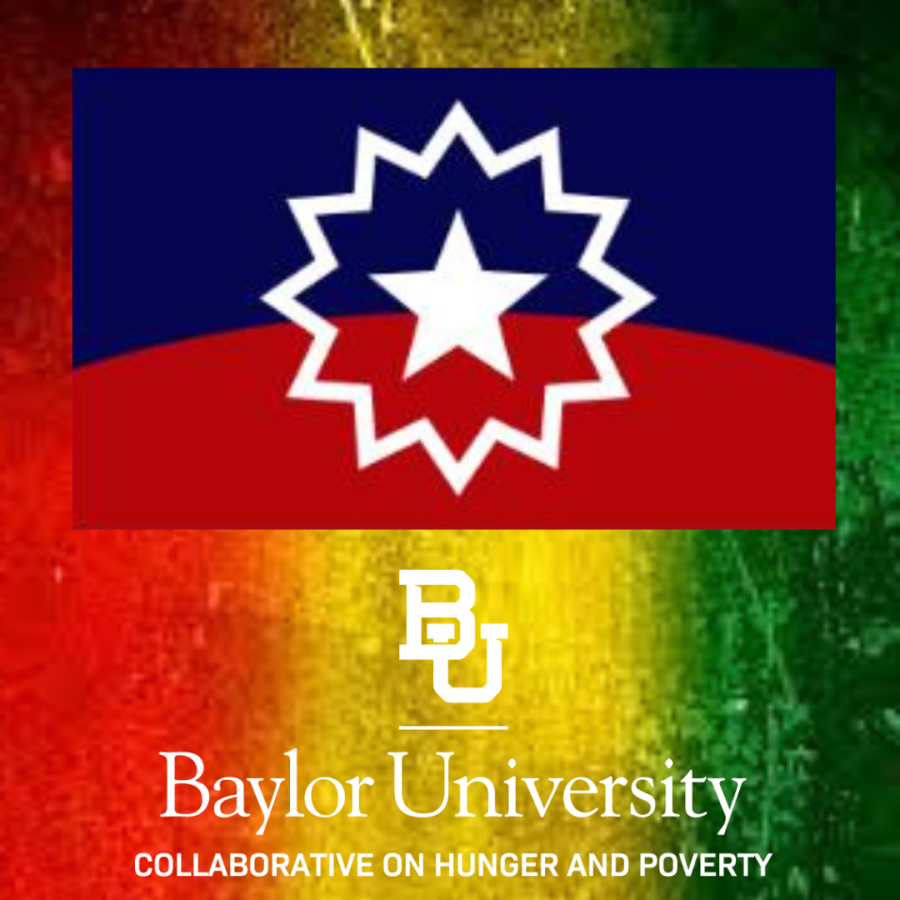News
The Baylor Collaborative on Hunger and Poverty exists to cultivate scalable solutions to end hunger. Many of those solutions come in the form of public policy. Legislation passed in the 2023 Texas Legislative Session mark significant wins for those most at risk of food insecurity in the state.
The Baylor Collaborative on Hunger and Poverty has received a gift from the Whitsons Culinary group to assist with hunger outreach programs.
The Baylor Collaborative on Hunger and Poverty has been awarded a grant to operate the innovative Meals-to-You program for a fifth summer.
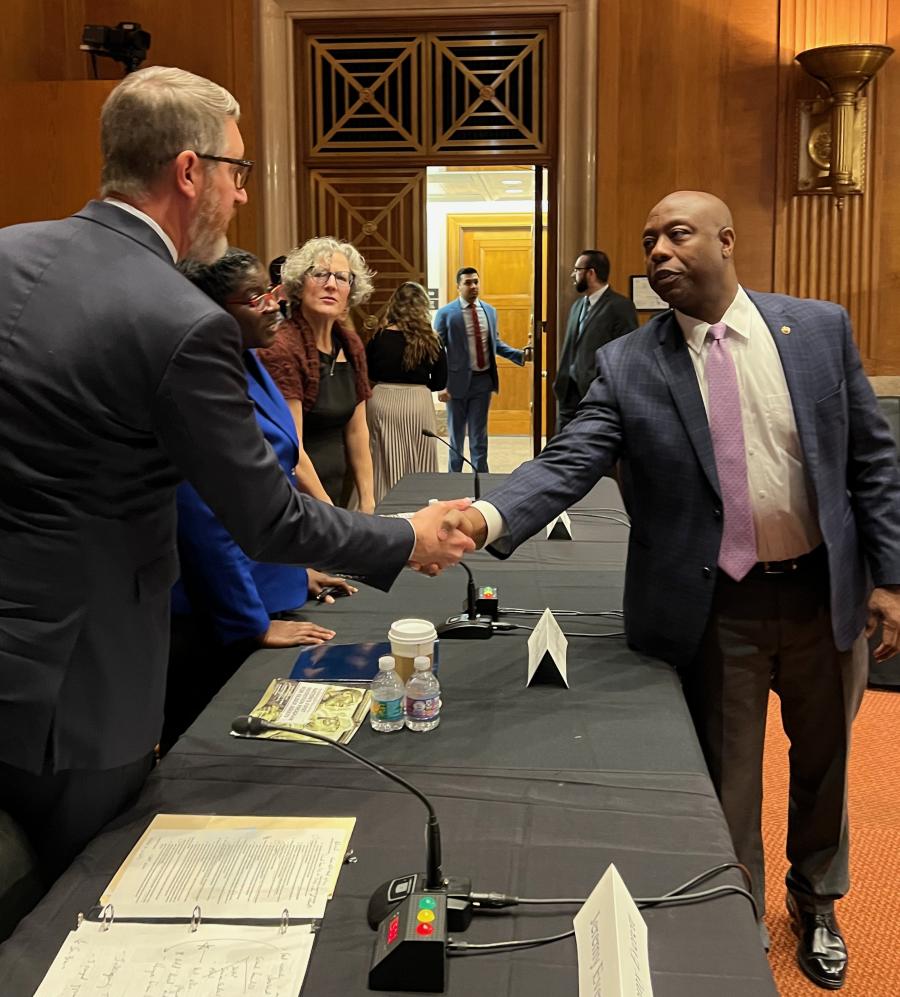
With the 2023 Farm Bill poised to be negotiated and passed in the fall, the Baylor Collaborative on Hunger and Poverty lays out three key priorities for the most important food-related policy of the U.S. Government.

An important pandemic-era food insecurity initiative is coming to an end.
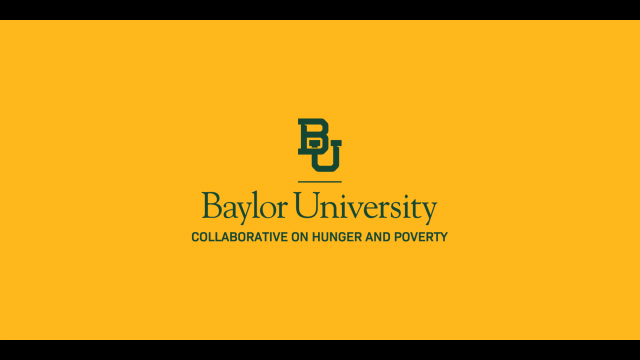
The 2023 Omnibus Spending Bill builds on the success of Baylor Collaborative on Hunger and Poverty's "Meals-to-You" program and opens the door for making meal delivery and EBT options a permanent part of the Child Nutrition landscape in the U.S.

Jeremy Everett, Founder and Executive Director of the Baylor Collaborative on Hunger and Poverty, will represent Baylor at the White House Conference on Hunger, Nutrition, and Health.

The annual report by the United States Department of Agriculture documenting the state of food insecurity in the U.S. has been released. Craig Gundersen, researcher with the Baylor Collaborative on Hunger and Poverty responds.
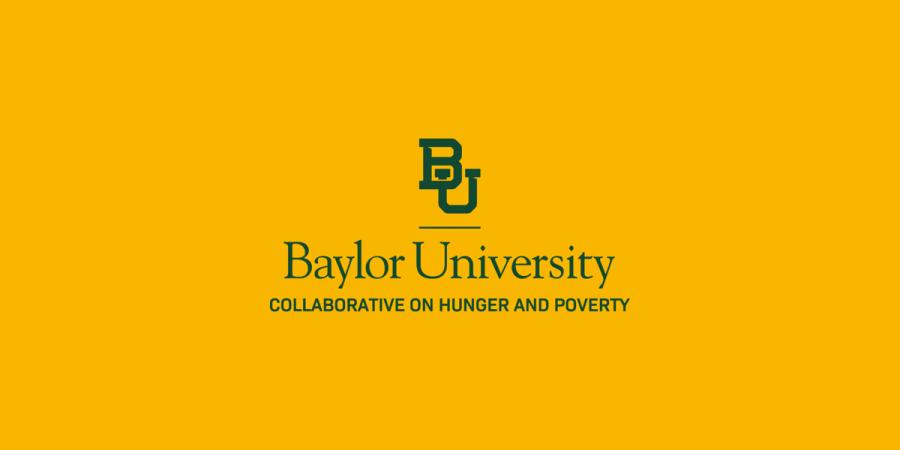
Jeremy Everett, Executive Director of the Baylor Collaborative on Hunger and Poverty issues statement regarding the passing of Congresswoman Jackie Walorski
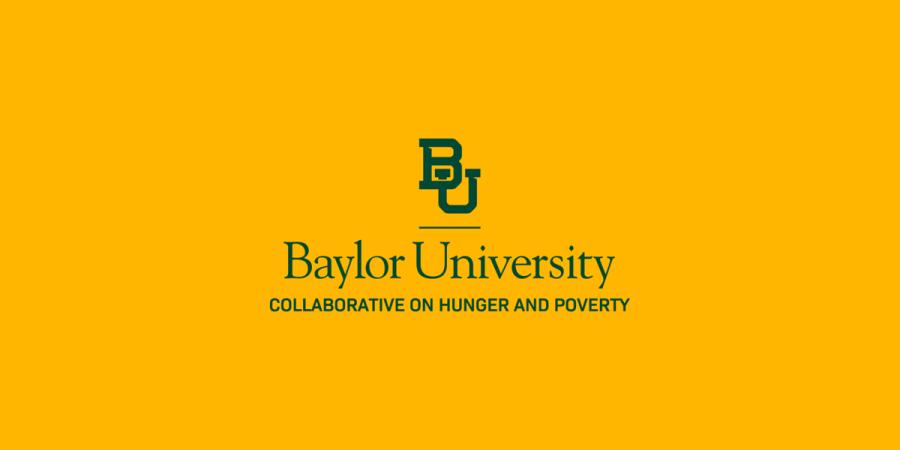
The Baylor Collaborative on Hunger and Poverty held a partner-led convening to solicit ideas for the upcoming White House Conference on Hunger, Nutrition, and Health.

Incentive program increases access to milk and milk products for low-income families.

The Meals-to-You demonstration project, designed to provide shelf-stable summer meals for children in rural areas, received funds to continue for a fourth year.

The White House has announced its first conference since 1969 on hunger, nutrition, and health. The event could result in positive movement to end hunger in our country.

A $455k grant from an anonymous donor will allow the Baylor Collaborative on Hunger and Poverty (BCHP) to partner with and provide support for George W. Truett Theological Seminary’s Master of Arts degree in Theology, Ecology, and Food Justice (TEFJ).

A new program of the Baylor Collaborative on Hunger and Poverty aims to evaluate criminal justice systems that intersect with the experience of hunger and poverty.

Baylor University today announced a $1.5 million gift from Jim and Tammy Snee of Austin, Minnesota, establishing an endowed faculty chair position to lead research efforts addressing food security through the Baylor Collaborative on Hunger and Poverty (BCHP).

LUBBOCK, Texas (NEWS RELEASE) — A partnership between the United States Department of Agriculture (USDA), Lowe’s Supermarkets, and the South Plains Hunger Solutions is expanding its reach into the Lubbock community. The Add Milk! pilot project, created in the 2018 USDA Farm Bill, is designed to research whether incentive programs for the Supplemental Nutrition Assistance Program (SNAP) will increase the consumption of healthy fluid milk among SNAP recipients. Add Milk! gives participants a dollar-for-dollar match to purchase additional milk to promote a healthy, well-rounded diet.

The USDA is set to increase Supplemental Nutrition Assistance Program, or SNAP benefits by more than 25%, the biggest increase in over 40 years. Professor Craig Gundersen weighs in on how that will impact food insecurity.

Craig Gundersen, an economist with the Baylor Collaborative on Hunger and Poverty, speaks to new SNAP guidelines aimed at increasing resources and reducing food insecurity.
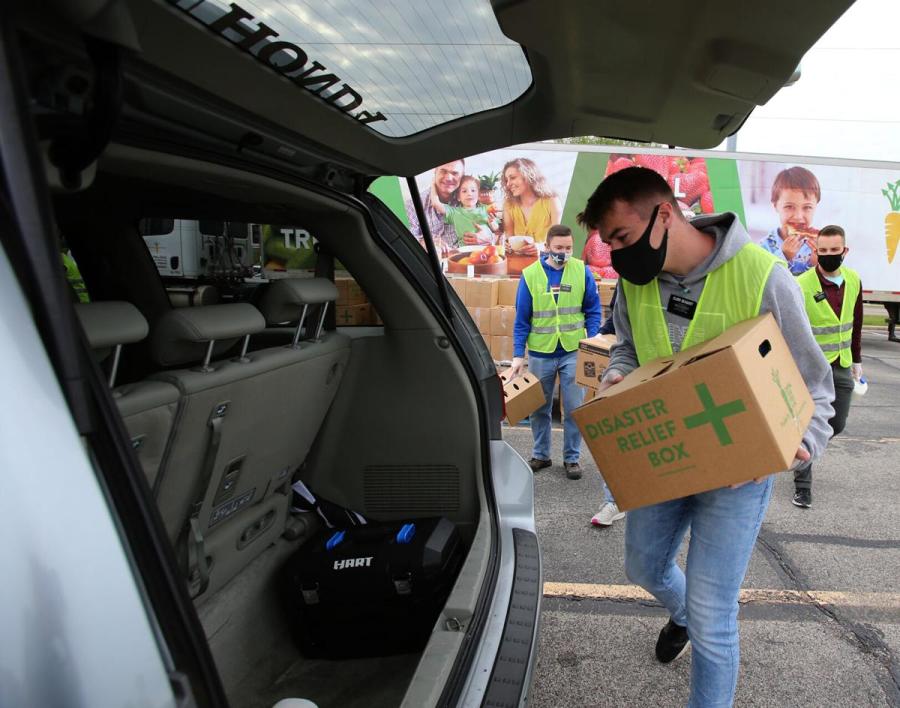
A new permanent increase to the federal Supplemental Nutrition Assistance Program announced Monday will make a big dent in food insecurity in McLennan County and across Texas, a Baylor University economist and food policy expert said.

Betty Teston from our West Texas office discusses the Add Milk! Healthy Fluid Milk Incentive Program

If we ever hope to solve our nation's hunger and poverty crisis, we must know the truth about it.
Grant continues support for Child Nutrition Outreach.
Newly named collaborative will become the umbrella entity for THI, as well as interdisciplinary research, Global Hunger and Migration Project and Hunger Data Lab
USDA grant will fund a research project aimed at testing an innovative approach to distributing food by mail to students in rural communities during the summer months.
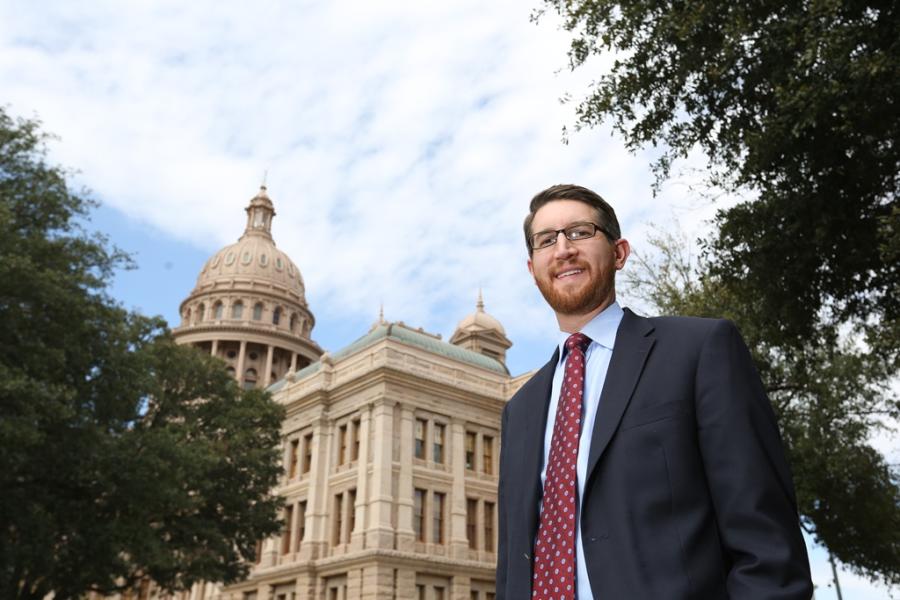
The Texas Hunger Initiative is affiliated with Baylor University’s Diana R. Garland School of Social Work and partners with federal, state and local agencies to develop and implement strategies to combat hunger. This month, it celebrates its 10th anniversary.
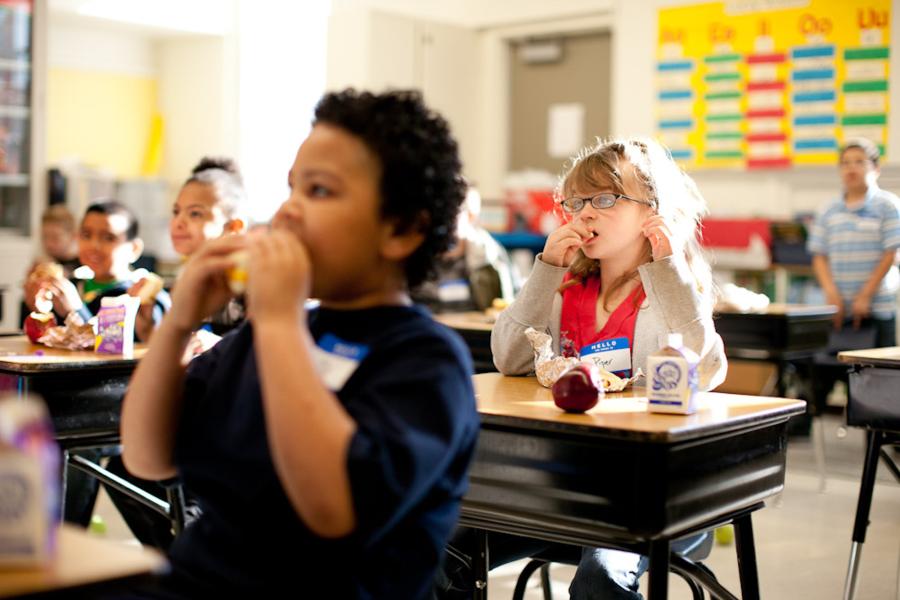
Waco ISD changed the way it delivers breakfast to students with the help of Baylor University's Texas Hunger Initiative, an organization that works across the state to coordinate efforts to battle hunger.

Move beyond failure and reach for seemingly unattainable dreams, such as a world without hunger, TV celebrity woodworker Clint Harp urged participants at the Together at the Table Hunger and Poverty Summit.
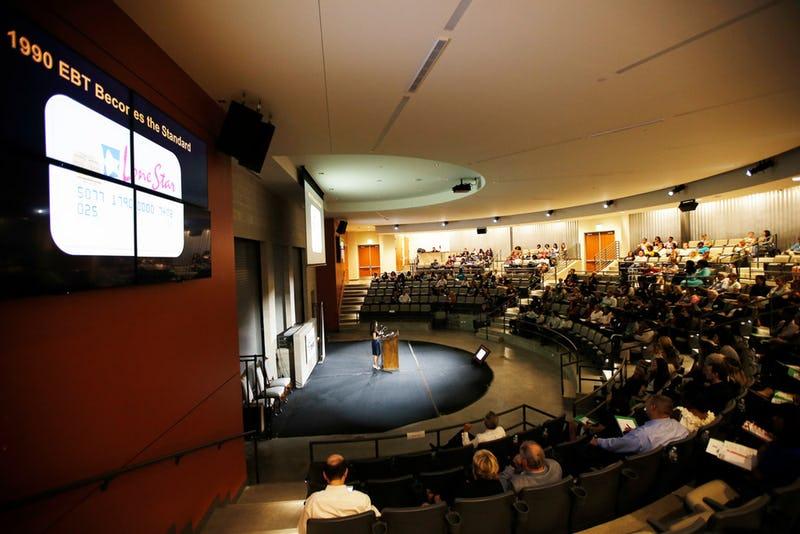
In the fight to increase food access in Dallas, area health nonprofits have a new weapon that will help them identify where Dallas faces the most urgent needs.
The City of Dallas Community Food Assessment, an interactive map that highlights key data like the concentration of diseases such as obesity and diabetes, was presented Friday at the seventh annual Dallas Hunger Summit, where dozens of area nutrition nonprofits gathered to listen to what Dallas’ hospital health systems and other health groups are doing to serve Dallas’ neediest.

Jeremy Everett, executive director of Baylor University’s Texas Hunger Initiative, will be a featured panelist at the Congressional Hispanic Caucus Institute’s (CHCI) 2018 Leadership Conference. He will be speaking on a panel for a session titled, "Integrated Food Security: Emerging Trends and Best Practices."
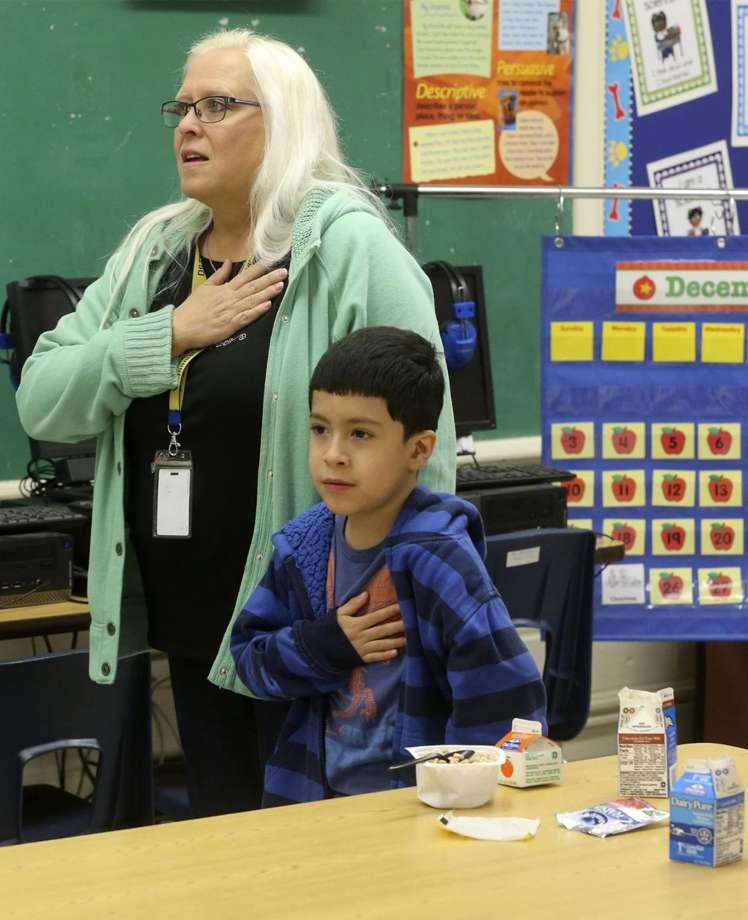
Participation in school breakfast programs is increasing, and that is good news in the fight against food insecurity among Texas families. School food programs are the primary providers of nourishment for many children. However, not all children eligible for free and reduced-price meals offered through the public school system take advantage of them, and that’s troubling. In Texas, 17.2 percent of households lacked access to adequate food in 2103 due to a lack of money and other resources, according to the United States Department of Agriculture. Among children, the food insecurity rate was 27.4 percent for 2013.
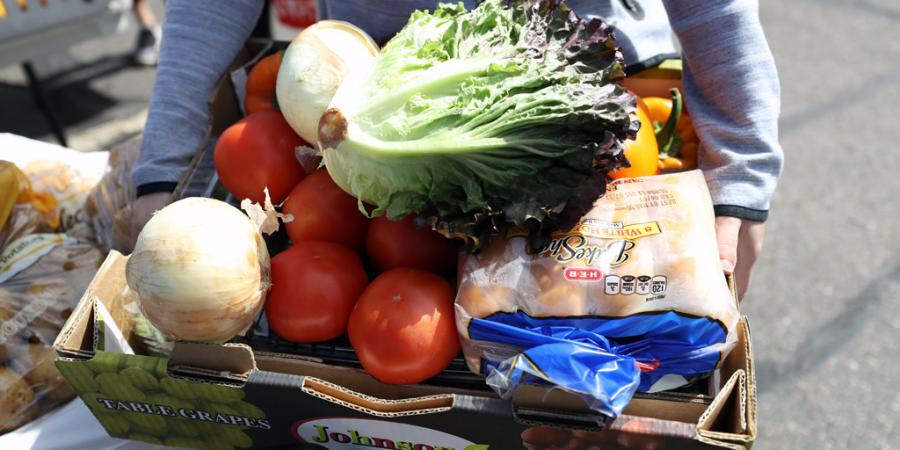
More than 42 million people in the U.S. are food insecure, meaning they lack reliable access to affordable, quality food. More than 4 million Texans are food insecure, including nearly 1 out of every 4 children. It’s felt by some of our own neighbors, here in Waco and even on campus. Here are four ways Baylor is working to “love thy neighbor” and combat hunger.
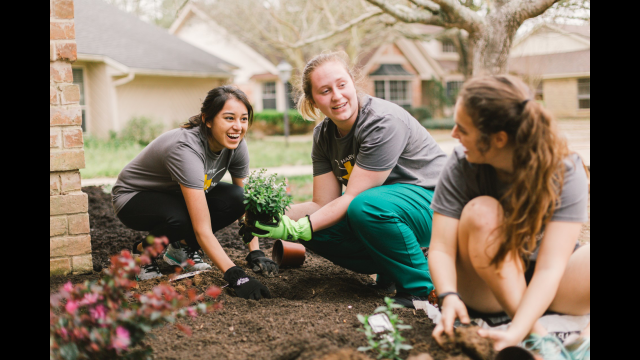
Three Baylor University mission teams served in Texas over spring break to provide relief for those affected by Hurricane Harvey, as well as by hunger, homelessness and many other circumstances. More than 60 students, faculty and staff traveled across the state to serve in schools, nonprofits, neighborhoods, respite centers and community buildings.
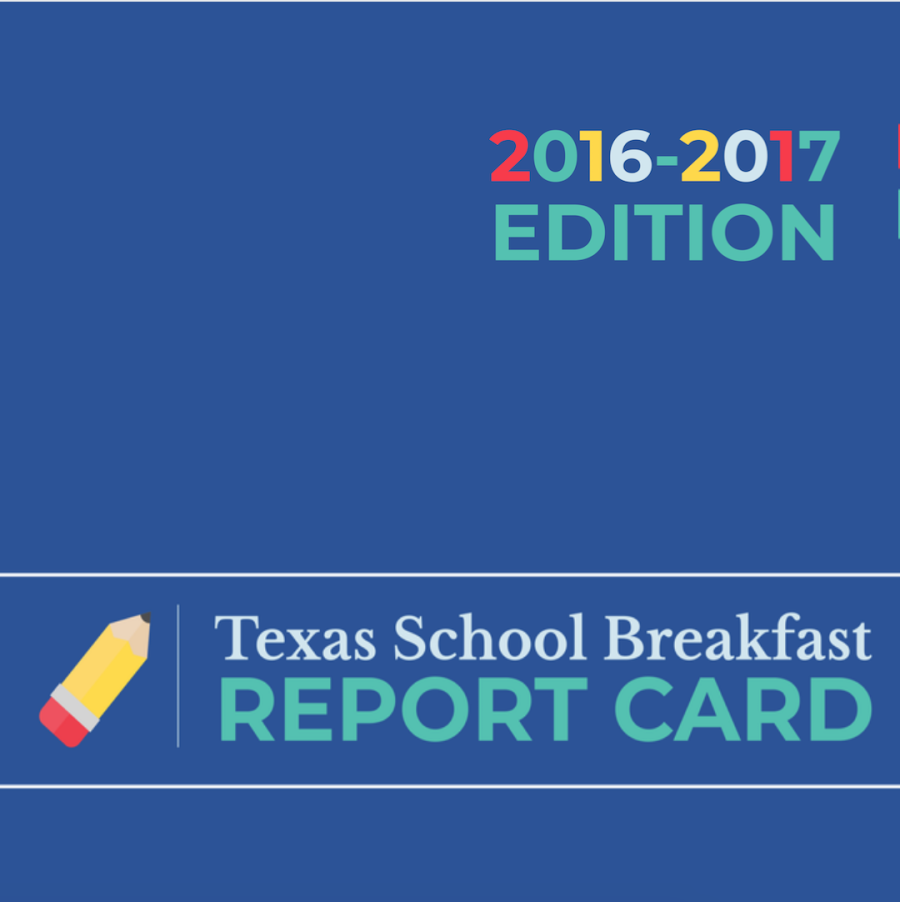
There is good news for Texas school children who start their day off with a school breakfast, according to the Texas School Breakfast Report Card produced by Baylor University’s Texas Hunger Initiative. Thanks in part to the passage in 2013 of Texas Senate Bill 376 – the “Universal Breakfast Bill” – and the implementation of alternative service models, Texas has become a national leader in school breakfast participation, moving up to 10th in the state rankings.

Teams of Baylor University students, faculty and staff will partner with various community groups and relief efforts over spring break March 4-9 in order to bring hope to communities that were impacted by Hurricane Harvey. Baylor Missions will work to identify needs, serve others and bring relief to the recently devastated and desolate areas in south Texas and along the Texas Gulf coast.
Grant will continue outreach for child nutrition programs, conduct research to evaluate effectiveness.
House Speaker John Boehner, R-Ohio, has announced the appointment of Jeremy Everett, M.Div. ’01, director of the Texas Hunger Initiative at Baylor University, to the National Commission on Hunger.
Established by Congress in January 2014, the National Commission on Hunger is charged with providing policy recommendations to Congress regarding programs and funds to combat domestic hunger and food insecurity. The Commission also will develop recommendations to encourage public-private partnerships, faith-based sector engagement and community initiatives to reduce the need for government nutrition assistance programs, while protecting the safety net for the most vulnerable members of society.
In conjunction with National School Breakfast Week (March 3-7, 2014), the Texas Hunger Initiative, based out of the Baylor University School of Social Work, has released the second edition of its Texas School Breakfast Report Card, demonstrating what participation in school breakfast programs looks like across the state. Designed with school administrators and nutrition personnel in mind, the Texas School Breakfast Report Card provides an introduction to child hunger in Texas while also laying out pragmatic models for breakfast distribution in schools, a breakdown of associated benefits, success stories and suggested goals for school officials trying to create a healthy, hunger-free learning environment.
"The Austin school district is missing out on a healthy helping of federal funding because fewer than one out of two eligible students eats free breakfast each morning.
The federal government has long paid school districts for free or reduced-price meals, including breakfast, that they serve to students. But while other districts are expanding their programs and passing along the bill to the federal government, Austin has seen a net drop in the number of students eating breakfast at school -- something research has shown boosts academic performance, deters discipline problems and helps fight obesity. Austin landed in the bottom 12 of the 87 districts studied in the School Breakfast Scorecard, released annually by the Food Research and Action Center."
http://www.statesman.com/news/news/austin-lags-behind-other-districts-in-providing-fe/ndPkx/
To view the full piece, download the articlehere.
The Texas Hunger Initiative at Baylor University received a $3.5 million Community Partnership Program contract from the Texas Health and Human Services Commission to expand access to food and health care for low-income Texas families.
The Texas Hunger Initiative at Baylor University has been awarded a $3.5 million contract from the state to expand a community outreach program designed to improve access to state food and health care benefits.
WACO, Texas (March 18, 2013) - The Texas Hunger Initiative (THI) at Baylor University has received a $3.5 million Community Partnership Program (CPP) contract from the Texas Health and Human Services Commission (HHSC) that will allow THI to develop an innovative statewide public-private partnership to expand access to food and health care for low-income Texas families through community-based research and programmatic activities. The contract is renewable for up to five years.
The Supplemental Nutrition Assistance Program (SNAP, or food stamps) is facing cuts on at least two different fronts over the next year. The new Ryan budget, introduced last Monday, includes $135 billion cuts to the program over the next ten years. But even if Ryan's proposed cuts do not make it into a final budget deal, SNAP funding will automatically decline in early 2014, thanks to the expiration of a stimulus package provision which increased food stamp money
The Texas Hunger Initiative will host a screening of "Food Stamped" a film that documents one family's attempt to eat healthy and survive on a food stamp budget. The screening will take place on Thursday, September 29th at noon at the Baylor School of Social Work. A panel discussion with Jessica Davila and Sonia White from CitySquare, a poverty focused non-profit in Dallas, will follow. The event is open to all interested community members.
